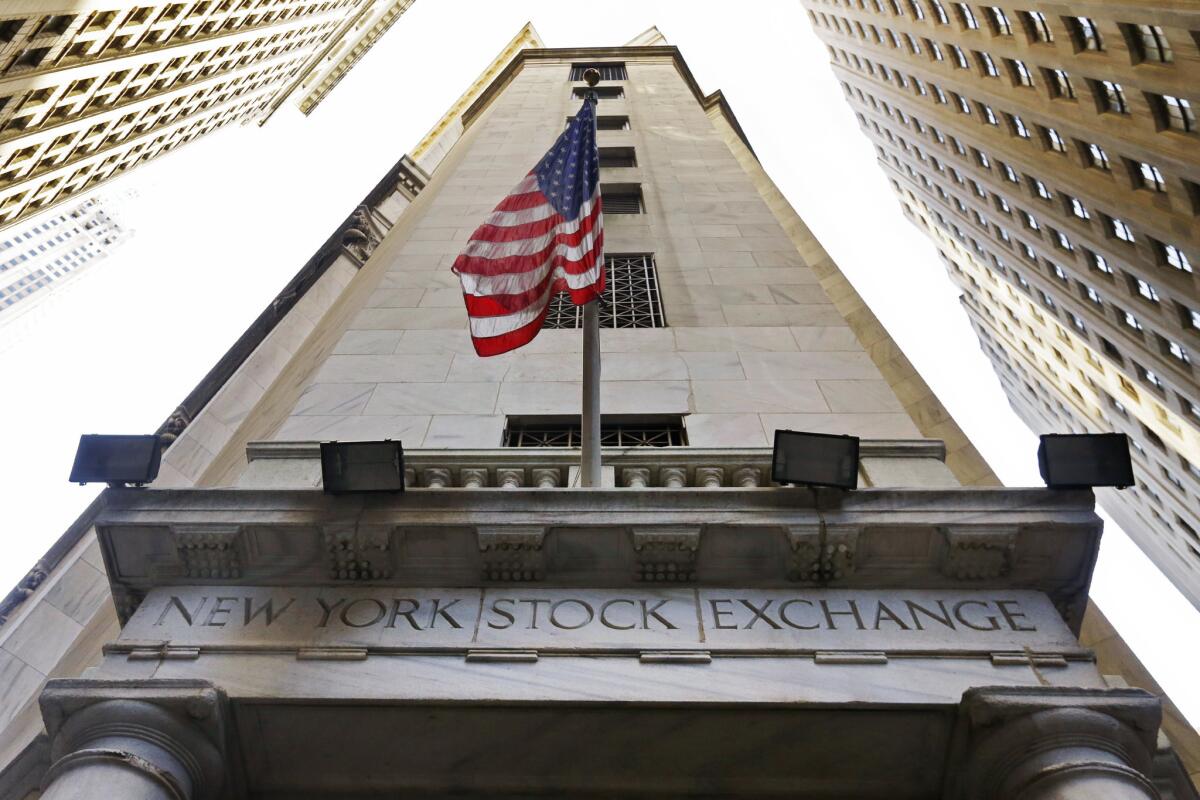Stocks near all-time high on rising oil prices

U.S. financial markets on Wednesday continued their swift and steady recovery from a wintertime plunge, as bad economic data drove indexes near new highs.
The Standard & Poor’s 500 index inched near its all-time record, the Nasdaq hit a five-month high and the Dow Jones industrial average closed above 18,000 for the first time since April.
Analysts said the day’s gains were sparked by Friday’s anemic May jobs report, which made it unlikely Federal Reserve policymakers would nudge up a key interest rate next week.
See the most-read stories this hour >>
Concerns about a global economic slowdown caused stocks to plunge in January and February and led Fed officials to delay raising their benchmark short-term rate.
Those fears about the world economy eased this spring, helping spark a slow-moving rally. A few months without worrying about an interest rate increase also helped.
Then, just when it looked like the Fed was preparing for a rate increase, the weak labor market report has made that less likely. That boosted the market in recent days.
Higher interest rates make stocks less attractive, so investors love that the Fed might not act for several months, said John Lonski, chief economist at Moody’s Capital Markets Research Group.
“Stocks are moving higher not because of upwardly revised outlooks for corporate earnings,” he said. “I think a lot of it has to do with what happened with the jobs report, which is reducing the risk of significantly higher interest rates.”
Rising oil prices, which hit their highest point in a year and a decline in the value of the dollar also helped the leading indexes in their recovery from sharp declines at the start of 2016.
The S&P 500 rose 6.99 points, or 0.3%, to 2,119.12 Wednesday. That was within easy striking distance of its record close of 2,130.82, reached in May 2015.
For the year, the index now is up 4% after hitting a low of 1,829.08 in late February.
The Dow rose 66.77 points, or about 0.4%, to close at 18,005.05. That’s only about 300 points off the all-time high it reached in May 2015.
The Dow is up about 3.3% so far this year. It also has been on the rise after bottoming out at 15,660.18 on the same day, Feb. 11, as the S&P 500.
The tech-heavy Nasdaq rose 12.89 points, or 0.3%, to 4,974.64. That was its highest level in more than five months.
Barry Ritholtz, chief investment officer at Ritholtz Wealth Management, said it’s difficult to know what’s fueling the market’s spring rebound.
He dismissed May’s weak job creation of just 38,000 as a possible anomaly – the monthly report has a margin of error of 100,000 – and believes the global slowdown fears have dissipated.
“The tales of the death of this economy, I’ve been hearing this for six years,” he said. “The U.S. is actually in fairly good shape.”
See more of our top stories on Facebook >>
Rising oil prices are a sign the global economy is improving, analysts said, even though the World Bank on Wednesday downgraded its growth forecast.
The two leading crude oil benchmarks – Brent and West Texas intermediate – closed at more than $51 a barrel, their highest prices since last summer.
Stabilizing oil prices after a long downward trend have helped boost financial markets, said A.C. Moore, chief investment strategist for Dunvegan Associates in Santa Barbara.
Energy stocks also make up about 11% of the S&P 500, so the rising prices are helping boost the index near its record high, he said.
Still, corporate profits have been weak. They fell in 2015 for the first time since the Great Recession. If profits continue to decline, “the market may rethink the current rally,” Lonski said.
He thinks the market is overvalued and cautioned investors about jumping in unless they can handle the risk.
“Just as the market was oversold at the start of 2016, right now it’s perhaps moving into a position of being overbought,” Lonski said. “If you’re a risk-averse investor … I wouldn’t necessarily get out of the market, but I’d think twice about increasing my exposure to equities.”
MORE BUSINESS NEWS
Key government reports were wrong about methane leaks’ severity, environmental group alleges
Diversity takes center stage at Airbnb’s annual tech conference
BMW wins LAPD electric car contract, beating Tesla
More to Read
Inside the business of entertainment
The Wide Shot brings you news, analysis and insights on everything from streaming wars to production — and what it all means for the future.
You may occasionally receive promotional content from the Los Angeles Times.











